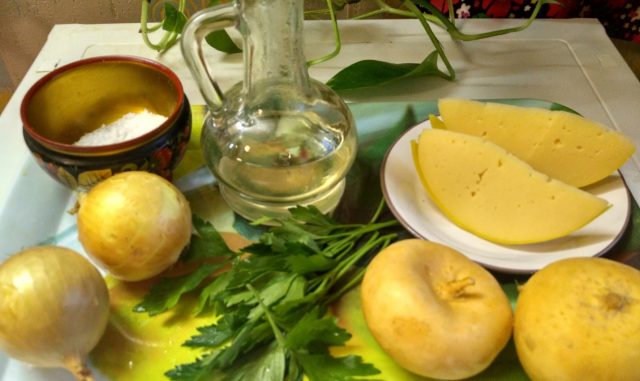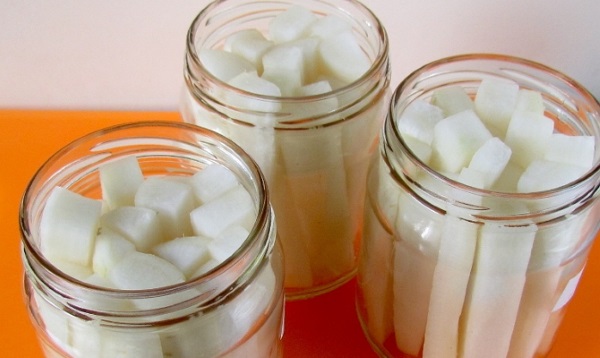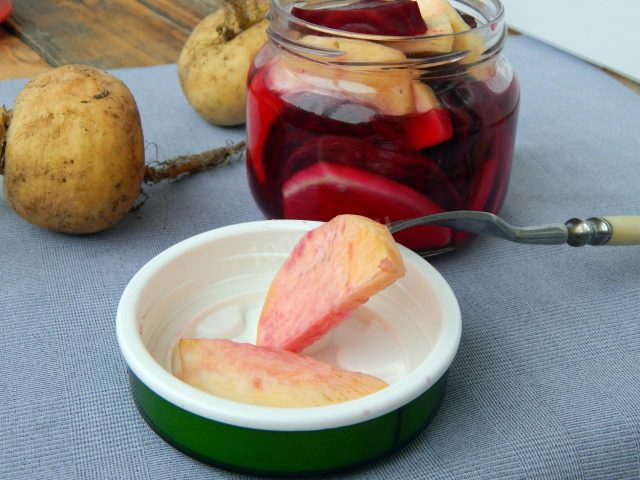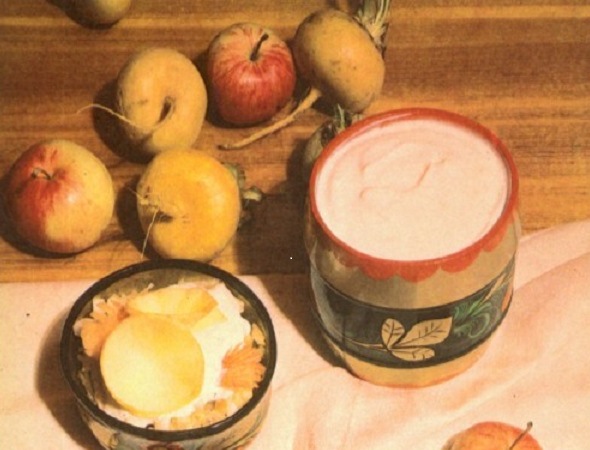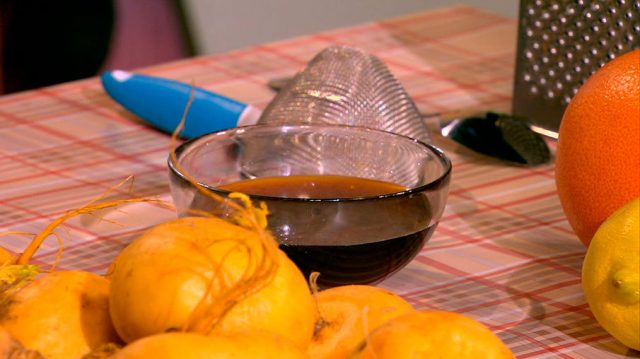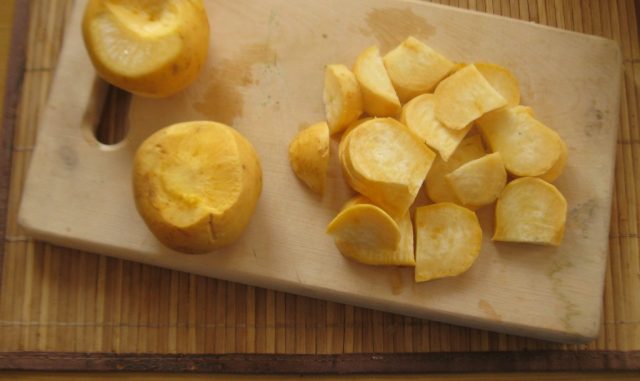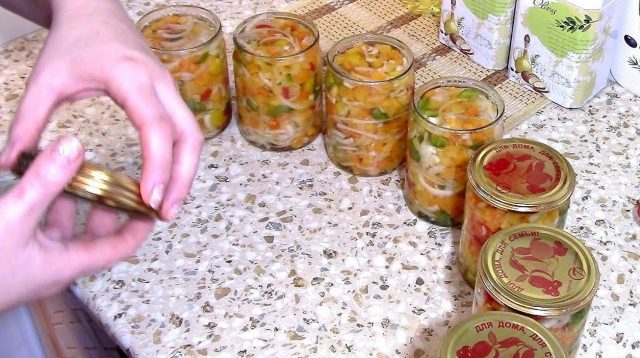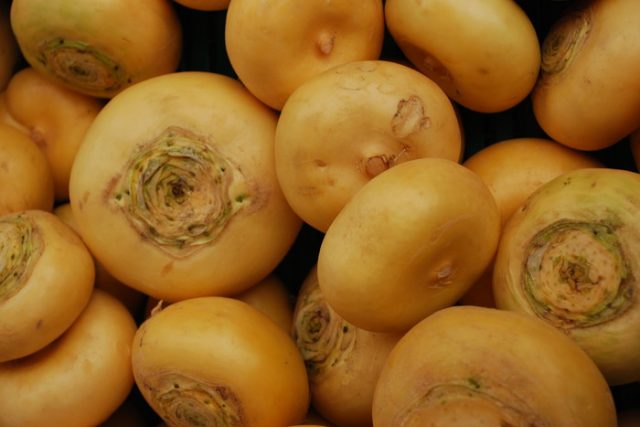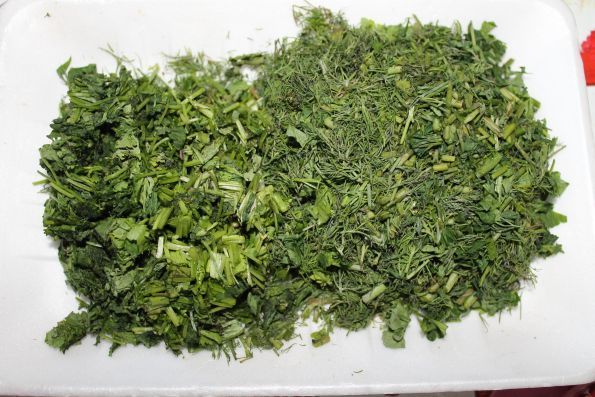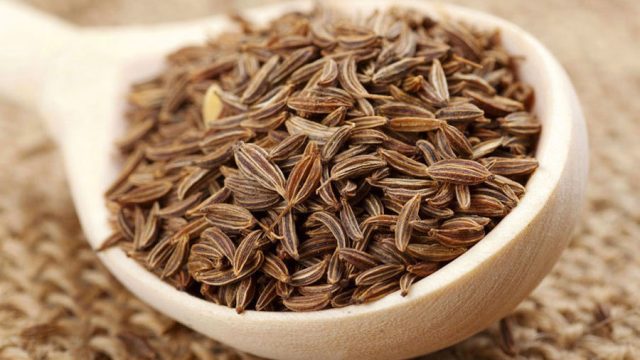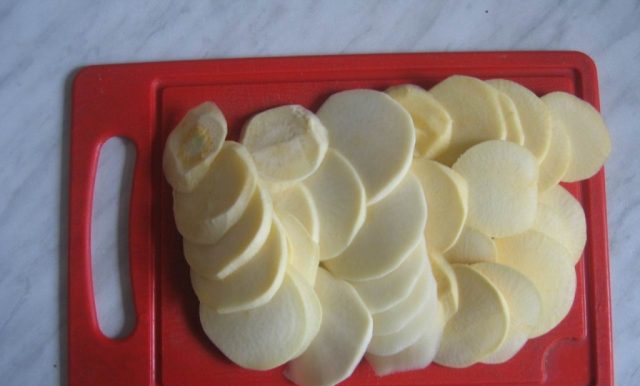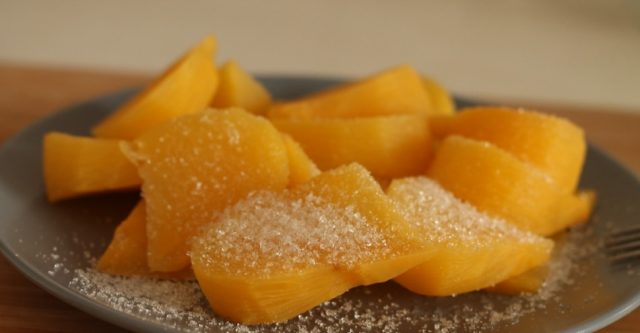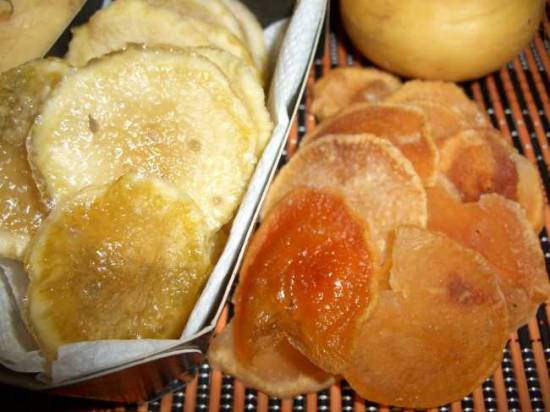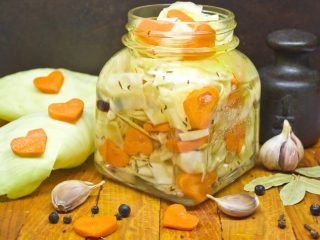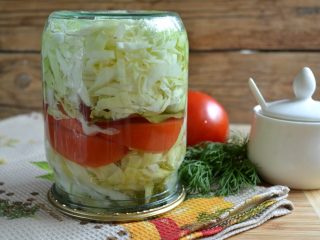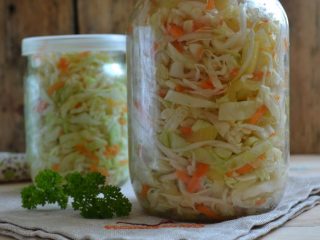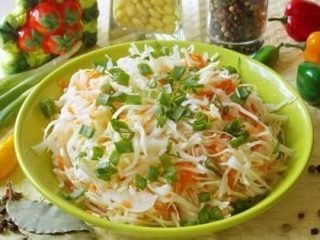Content
- 1 What turnip preparations can be prepared for the winter
- 2 How to pickle turnips
- 3 Recipe for turnip salad with bell pepper and herbs for the winter
- 4 How to pickle turnips for the winter
- 5 Turnip, salted for the winter with herbs
- 6 How to salt turnips with caraway seeds according to an old recipe
- 7 How to dry turnips for the winter
- 8 An unusual recipe for turnip jam
- 9 How to make candied fruits from turnips
- 10 The original recipe for turnip wine
- 11 How to store turnip blanks
- 12 Conclusion
Before potatoes were grown everywhere in Russia, turnips were planted much more often. This culture was the second bread, and not an unusual dish with a touch of exoticism. It was especially popular in cool and cold regions, since even there it could give two harvests per season. Turnips were simply harvested in huge volumes for the winter - fortunately, root crops are stored well, and they do not lose nutrients until spring.
What turnip preparations can be prepared for the winter
Of course, for our ancestors, the main way of harvesting turnips for the winter was keeping fresh root crops grown in the fall - the spring ones were consumed immediately or processed. In the summer, no one planted the crop - it quickly went to the arrow, and so it would be possible to get three harvests per year.
Fresh turnips are put in salads and cabbage soup, steamed, make hot dishes and side dishes for meat. Sweet dishes are prepared from it, especially the root vegetable is good with honey.
The turnips were also dried and salted, fermented. Today, the most popular way to prepare it for the winter is pickling. Turnip is rarely cooked alone, although it turns out to be quite tasty. Usually it is introduced into the composition of various salads, where the root vegetable often acts as an additional ingredient than the main one. And in vain.
Korean marinated turnip is considered a delicacy. Jams, candied fruits, even wine are prepared from root crops. Of course, these are not the foods that are served on the table every day, they are intended to make the diet varied.
Pickled root vegetables can act not only as a salad, but also as an appetizer, and if you spend extra effort - as a main dish. Moreover, it will be tasty, healthy, and, unfortunately, unusual.
How to pickle turnips
One of the main preservation methods is pickling. It differs from salting and pickling by dressing, which necessarily contains acid, which suppresses the vital activity of microorganisms, leading to spoilage of products.
It must include salt or sugar (honey). As additional components, spices, onions, garlic, vegetable oil are used (or not). All of these ingredients also have the ability to preserve food, but acid is still the main preservative. Moreover, it is introduced immediately, and is not formed during fermentation, as during fermentation.
It is important to follow the recipe here. If you put less acid, it will not be possible to ensure the safety of the products, more will be tasteless.
Inexperienced housewives can be given the following tips:
- For pickling, you should take quality products. It is better to do the harvesting immediately after harvesting.
- If the recipe does not include pasteurization, the jars and lids must be sterilized first.
- Particular attention should be paid to the dosage of vinegar - it is 6 and 9%, and there is also an essence, the strength of which reaches 70-80% ("glacial" acid - 100%). If something is confused, the workpiece will be inedible or swollen.Advice! If the recipe does not indicate the concentration of vinegar, it should be discarded.
- The dosage of another acid - citric, tartaric or any other, must be left unchanged.
- The amount of salt, sugar or honey is not as critical, but sticking to the recipe is best.
- Previously, only yellow lacquered tin lids were used for pickling. Now they can be very different, even reusable glass. But still, it is better to ask what types of blanks these or those covers are intended for.
- The advice that is given at the end of almost every recipe - turn the cans over and wrap them until they cool down - is far from idle. So you can find a loosely closed container, the lid of which is letting in air. Insulation is the final stage of conservation, allowing the products to warm up additionally. If you leave hot cans just to stand on the table with their necks up until they cool, they can "puff up" or rip off the lids. Even if all the previous marinating steps were performed correctly, and the products were of high quality.
- There are recipes for blanks in which nylon caps are used. They must be washed and doused with boiling water. Since capping with nylon caps usually does not provide for tightness, it is not necessary to turn the cans over, but it is necessary to wrap up.
Turnips for pickling are chosen whole, medium or small. Root crops should not be damaged, let alone rotten.
They are thoroughly washed beforehand, even if the recipe requires you to remove the skin, and cook immediately. Leave peeled, and even more so chopped root crops, should not be even for a short time - deprived of the protection of the outer shell, they lose useful substances. First of all, there are essential oils, which are already scarce in turnips, and it is on them that the aroma of the final product depends, and, in part, the taste of the preparation.
Beet Pickled Turnip Recipe
When turnips and beets are cooked together, the taste of both products changes significantly, and the color becomes pink or red.
Ingredients:
- turnip - 0.5 kg;
- beets - 1 pc.;
- garlic - 4 cloves;
- salt - 1 tbsp. l. with a slide;
- vinegar (9%) - 2 tbsp. l .;
- bay leaf - 1 pc .;
- black peppercorns - 4 pcs.;
- red hot pepper - 0.5 medium-sized pod;
- water - 200 ml.
You can not put pepper at all, and the size of the beets can be taken arbitrarily.
Preparation:
- The turnips are washed and peeled.
- Cut into half rings about 5 mm thick.
- Fold in a deep bowl and fill it with salted water overnight. Press down on top with something so that the pieces are completely immersed in the liquid.
- In the morning they are washed under running water and allowed to drain.
- Beets are washed and peeled. Cut in the same way as turnips. If the beets are large, each circle is divided into several parts.
- Root vegetables are mixed and laid out in small sterile jars. You can lay them in layers.
- Put 1 clove of garlic in each container. If the pieces are small or the owners like spicy, more can be done.
- Prepare the marinade: first boil water with spices, then add vinegar and cook for another 5 minutes. Cool.
- Pour marinade over, cover with nylon caps.
- Store the workpiece in a cool place. You can eat in a week, or leave it for winter consumption.
Turnip marinated with apples
There are many recipes for turnips pickled with apples. This one is intended for harvesting "production waste" - small root crops, which are a pity to throw away, but it is not clear what to do with them. But no one will definitely clean them, except as a punishment.
But apples are needed good, with a dense crispy pulp.
Ingredients:
- small turnip - 1 kg;
- apples - 1 kg;
- water - 1 l;
- sugar - 1 glass;
- apple cider vinegar - 125 ml;
- salt - 2 tbsp. l .;
- cinnamon - 10 g.
Some people don't like cinnamon at all; you can remove it from the recipe.
Preparation:
- The apples are rinsed, peeled, quartered and cored.
- The turnips are thoroughly washed with a brush or a tough clean cloth, the tail is shortened, all petioles are removed completely.
- A marinade is prepared from the rest of the products, and vinegar is poured in last, brought to a boil and cooled.
- Slices are placed in a clean dish, poured with marinade.
- A load is placed on top.
- Transfer to a cool storage room after 2 weeks.
This preparation for the winter from turnips and apples is made in capacious containers - tubs, large pots made of food-grade stainless steel. If there is nowhere to store them, they can be transferred after 2 weeks into three-liter jars, closed with nylon (leaky) lids.
How to pickle turnips for the winter with honey and cloves
Despite the fact that this piece contains a lot of honey, it is used as an appetizer, not a dessert.
Ingredients:
- turnip - 1 kg;
- water - 1 l;
- honey - 200 g;
- nutmeg - 1/4 tsp;
- carnation - 3 buds;
- apple cider vinegar - 120 ml.
Alternatively, replace the nutmeg and cloves with a large head of garlic for a completely different flavor.
Preparation:
- Turnips are washed, peeled, cut into slices about 0.5 cm thick.
- Placed in sterile jars.
- If the harvest is made with garlic, it is placed on the bottom.
- Boil water, add nutmeg and cloves (if using the spice option, not garlic). Introduce honey. As soon as the marinade boils again, pour in the vinegar.
- Root vegetable is poured with hot marinade, sealed with nylon lids, insulated, left overnight.
Instant pickled turnip
A simple and reliable recipe for making pickled turnips quickly and tasty. The main thing is that it takes little time, and the result is an excellent appetizer.
Ingredients:
- turnip - 1 kg;
- water - 700 ml;
- honey - 150 g;
- salt - 2 tbsp. l .;
- apple cider vinegar - 100 ml.
If you wish, you can add garlic directly to the jar or cloves when preparing the marinade - as you like.
Preparation:
- Small roots wash well, shorten the tail. Large ones are cut into slices.
- Placed in sterile jars.
- When preparing the marinade, first boil water, adding salt and cloves, then honey, and when the water boils, vinegar.
- Pour turnips, close the jars with nylon lids and wrap them warmly.
Recipe for turnip salad with bell pepper and herbs for the winter
You can also preserve turnips for the winter as part of salads, it goes well with other vegetables. In winter, you can open the jar and serve immediately. For this you need to take:
- turnip - 1 kg;
- carrots - 1 kg;
- sweet pepper - 0.5 kg;
- onions - 0.5 kg;
- garlic - at least 4 cloves;
- celery and parsley greens - 1 bunch each.
Each housewife puts the last ingredient in a turnip salad with carrots for the winter to taste, but only upwards. Completely without garlic, the preparation will turn out to be too bland, but it will not be suitable for dietary nutrition - after all, vinegar is included in the composition.
Preparation:
- Root vegetables are washed, peeled, cut into strips or tinder on a coarse grater.
- Cut sweet peppers and onions into thin half rings.
- Greens are washed well, petioles are removed and chopped.
- Combine the ingredients and mix.
- Measure the volume of the resulting mass. It is convenient to do this with the help of a liter mug - it is rather inconvenient to first push the mixture of vegetables into the jar, and then get it back.
- For each liter of salad add 2 tsp. salt and sugar, 2 tbsp. l. vinegar. Mix thoroughly.
- Cover the dishes with a lid or cling film, let it brew for 30 minutes. During this time, mix vegetables several times so that they are evenly saturated with vinegar, salt, sugar, and let the juice a little.
- At the bottom of clean half-liter jars, first put a bay leaf, spread the salad on top.
- Sterilized for 25-30 minutes.
- Banks are rolled up, turned over, wrapped until they cool completely.
How to pickle turnips for the winter
Salting turnips is very simple. In winter, it can be washed, soaked, and used for making salads, cabbage soup, side dishes.
Ingredients:
- turnip - 1 kg;
- salt - 0.5 kg.
Preparation:
- Root crops are well washed, cleaned, cut into not too thick slices of the same size.
- On the bottom of a clean dish, preferably a stainless pan, pour a layer of salt, then put some turnips. And so, until the pieces of the root crop run out. The last layer should be salt. There may not be enough spices - after all, in this recipe everything is done "by eye". They just fill it up as much as needed.
- Cover with a cabbage leaf, set the oppression.
- Top up with cold boiled water so that it completely covers the pieces of root vegetable.
The container should stand in a cool place for two weeks. Then you can spread the pieces tightly into the jars and pour over the same brine.
Turnip, salted for the winter with herbs
If you salt turnips with herbs, they can also be used to prepare various dishes. You just need to take into account that a stranger will be added to your own smell of herbs. Absorbs the aroma of greens and turnips.
The herbs are washed, allowed to drain, dried to remove excess moisture. Petioles are removed and cut. Then it is mixed with salt. Everything else is the same as in the previous recipe.
How to salt turnips with caraway seeds according to an old recipe
The two previous recipes are variants of the old one, with caraway seeds. One is simplified, in the other the seeds are replaced with greens. These recipes are used much more often than the original, since the smell of cumin is very similar to aniseed, and not everyone likes it.
Here everyone does the same as when preparing turnips with salt. Just add 1/2 cup of cumin seeds to the ingredients. You should not put more in - the aroma will be lethal anyway.
How to dry turnips for the winter
Of course, it is best to dry turnips in a special dryer or a Russian oven. But you can do this in an ordinary oven, however, you will have to spend a whole day, or extend the operation for several days.
- Turnips are washed, peeled, chopped with plates no thicker than 5 mm.
- Pour boiling water over it, put it in a colander, cool it under running cold water, blot it with a kitchen towel. No need to cook! And keep in boiling water too!
- Place in one layer on a baking sheet.
- Put in an oven preheated to 55-60 ° C.
- The door should be open for the first 15 minutes.
- Stir the slices from time to time, otherwise they will dry unevenly.
This will take about 10 hours. Dry turnip pieces should bend, but not break. They will significantly lose in volume, as they will lose fluid. If it is not possible to devote a whole day to drying turnips, this is done in several steps, but then you will have to spend more time. In this case, the oven is turned off, leaving a leaf with root vegetables there.
Dried turnips can be eaten like chips, however, only for those with good teeth. Usually it is soaked overnight and added to the first courses, stewed, baked.
An unusual recipe for turnip jam
Many do not even try to make turnip jam, since most recipes begin with the fact that the root vegetable is offered to be soaked for several days, first in cold water, and then in hot. Or vice versa. Ostensibly to take away the bitterness. Sorry, but only the peel of this root vegetable is bitter, it should not be confused with a radish. So it's enough to peel the turnip.
Ingredients:
- turnip - 1 kg;
- honey - 0.5 kg;
- water - 200 ml;
- cardamom boxes - 8 pcs.;
- star anise stars - 6 pcs.;
- allspice - 5 peas;
- pink pepper - 3 peas;
- cloves - 3 pcs.;
- cinnamon (sticks) - 2 pcs.
Preparation:
- They wash and peel turnips.
- Cut into beautiful slices, dry.
- Cardamom seeds are husked from the capsules.
- The dishes in which the jam will be prepared are put on the fire, all the spices are added there, and heated until a spicy smell appears.
- Add honey, dissolve it over low heat.Important! Do not bring honey to a boil!
- Add turnips, mix. When the jam boils, the heat is reduced to minimum.
- Cover with a lid.
- The foam is removed as it appears.
- Cook until turnips are soft. This takes an average of 90-120 minutes.
- Put the jam in sterile jars, close with nylon or screw caps.
- Store in the refrigerator.
How to make candied fruits from turnips
It is important to get candied turnips right. Otherwise, they may become moldy right in the refrigerator, or they may taste, to put it mildly, "not very". It is often advised to make candied turnips in honey by transferring (pouring) them into a jar along with the liquid, and skipping the drying stage. It will be delicious. But it is wrong to call such a preparation candied fruit.
Ingredients:
- turnip - 1 kg;
- sugar - 1 kg;
- citric acid - 3 g;
- vanillin - a bag.
Preparation:
- Turnip is washed, peeled.
- First, circles about 2 cm thick are cut, and they are already divided into thin plates.
- Blanch in boiling water for 5 minutes, immediately cool under running cold water. If you just pour the slices into a large container, the liquid will heat up, and the thermal processes will not be stopped, candied fruits will not work.
- Sprinkle with sugar, mix, leave for at least 10 hours.
- When the turnip has released its juice, the dishes are put on the fire, boiled until the syrup thickens and the slices become transparent. If you cook candied fruits with honey in this way, this moment cannot be determined.
- Pour in vanillin and citric acid, cook for another 10-15 minutes.
- Throw the turnips in a colander, preferably with large holes. Leave for 60-90 minutes to allow the glass to maximize the amount of syrup.
- Spread candied fruit on a sieve in one layer, dry for 24 hours at room temperature.
- Dip the turnip slices in sugar and dry for another week.
- Store in jars closed with nylon lids.
The original recipe for turnip wine
Frankly speaking, the wine will turn out to be really original, as they say, “for an amateur”. So the first portion should be small.
Ingredients:
- turnip juice - 1.2 l;
- sugar - 1.2 kg;
- vodka - a glass.
Preparation:
- Squeeze turnip juice in any convenient way.
- Mix with vodka and sugar.
- Transfer to a cylinder under a water seal, or a glove pierced on one finger.
- Place in a warm place for fermentation. It will last for about a week.
- Cap the bottle and put it in a cool place for additional fermentation.
- After 3 months, bottle.
Turnip wine will not work if the fermentation temperature was less than 20 ° C. Or when you put in a little sugar. You need to be careful about the last moment, because in stores now they often sell not kilogram packages, but containing 800 or 900 g. And a glass with a capacity of 250 g contains 160 g of sugar.
How to store turnip blanks
The canned turnip should be stored with other raw materials, unless the recipe specifies another way. A cellar, basement, or, in extreme cases, a refrigerator are suitable for this. Those in barrels and pans are especially sensitive to high temperatures and should be kept out of light.
Conclusion
Turnip for the winter allows you to diversify the diet and make up for the lack of vitamins, because it retains useful substances until spring. So that they are less destroyed during canning and heat treatment, the recipe should be followed.
